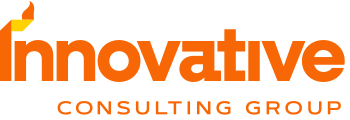Author’s Note: My wife (who is a nurse practitioner) and I recently attended an event for leadership at a prominent health system. Several conversations reflected both the benefits and concerns of AI in the healthcare environment. This ambivalence suggested an even bigger question: Is the organization ready to generate responsible AI? These concerns led me to create this three-part series on ‘AI Readiness.’ — Chris
Careful IT management creates the platform for AI successes
Here are six essential steps healthcare organizations should take to become AI Ready:
- Data aggregation: Much of healthcare data continues to be siloed across various applications and systems, not to mention acquired entities. Integrating these systems allows AI algorithms to access a comprehensive dataset, which is essential for training accurate and robust models.
- Holistic patient understanding: By integrating data from multiple sources, AI systems can gain a more comprehensive understanding of a patient’s health status, medical history, and risk factors. This enables more personalized and effective care delivery, as algorithms can consider a broader range of factors when making clinical recommendations.
- Improved diagnostic accuracy: Integrating AI algorithms into diagnostic imaging systems, laboratory information systems, and other diagnostic tools can enhance diagnostic accuracy by providing clinicians with additional insights and decision support. For example, AI powered image analysis can help radiologists identify subtle abnormalities that may be missed by the human eye alone.
- Enhanced workflow efficiency: Integrated AI systems can automate routine tasks, streamline workflows, and reduce administrative burdens for healthcare providers. For instance, AI-powered chatbots or voice assistants can handle appointment scheduling, medication reminders, and patient inquiries, allowing clinicians to focus more time on direct patient care.
- Facilities research and development: Integrated healthcare systems enable researchers to access large, diverse data sets for studying disease patterns, treatment outcomes, and population health trends. AI algorithms can analyze these data sets to identify novel insights, biomarkers, and treatment strategies, accelerating medical research and innovation.
- Ensuring data security and compliance: Comprehensive integration requires robust data governance policies and security measures to protect patients’ privacy and comply with regulatory requirements. By centralizing data management and access controls, integrated AI systems can mitigate the risk of data breaches and unauthorized access.
“Emerging tech, like AI, is poised to make healthcare more accurate, accessible and sustainable.”
World Economic Forum, Davos, Switzerland,
June 21, 2023
Careful IT management creates the platform for AI successes
In summary, comprehensive systems and applications integration are essential for unlocking the full potential of AI in healthcare. This enables access to comprehensive data sets, improving diagnostic accuracy, enhancing workflow efficiency, facilitating research, and ensuring data security and compliance.
Select an Integration as a Service (IaaS) IT vendor that has the flexibility and comprehensive services to ensure your systems are AI Ready.

